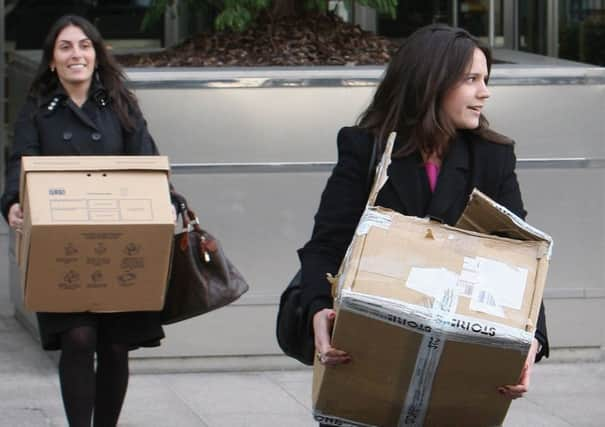James Walker: Memories of Lehman should make us leery


Back then I was chatting to a consumer rights organisation and happened to glance over to the big glass meeting rooms over the docks, where the entire workforce of financial colossus Lehman Brothers were in a meeting. It was mid-September and the firm was filing for bankruptcy. The financial crisis was about to begin.
Investors and economists were so certain that a financial collapse on this scale could not occur, there was a huge sense of shock when it did. And of course, we all paid the price for the banker’s arrogance.
Advertisement
Hide AdAdvertisement
Hide AdTen years on and despite a decade passing, some parts of the economy are looking a bit rocky. So if you’re worried about dark financial clouds on the horizon, what can you do to protect your cash?
◆ Keep it British: A decade ago, there was a mini-craze for putting your savings into Icelandic banks. People got a rude surprise when the banks packed in and the money vanished. The British government stepped in on that occasion, but it was a reminder to people that investing money off-shore can be a risky business. Every year I see people lured into buying land in foreign countries (land banking), property investment portfolios and other high-risk ventures. Some are legit, some are outright cons. But if you take your cash off-shore, you are taking a very high risk if things go wrong.
◆ Savings and investments: This leads us to the Financial Services Compensation Scheme (FSCS). The FSCS is a free service like an ombudsman but for regulated (UK-based) financial firms that go bust. The maximum amount it can pay varies depending on what it is you’re claiming for. It doesn’t cover credit companies such as Wonga though.
◆ Debts: It would be lovely if debts vanished when a firm goes bust, but I’m afraid that they live on. Your debt will be passed to another company, but if it treats you unfairly, increases charges or puts you under undue pressure to pay up you have a right to pursue a complaint. You’ll also be able to go to the Financial Ombudsman if there’s a problem with the company that takes over your debt.
◆ Pensions: I’ve seen some terribly managed pensions lately where commission and charges have eaten away at the money invested, including one case where the plan was whittled down to just £3.50. Get educated about your pension plan. Ask the provider for information and get them to explain in plain English how it works. If you don’t know how to get started, The Pensions Advisory Service can help you out.
◆ Purchases: We live in volatile times, so no-one is going to seriously predict where the economy may be in a year or two. But if you’re planning on making a significant purchase, from a house to a car, or even a sofa, before you borrow money, work out your finances. Make sure you’ve got at least an extra 10 per cent of spare cash – ideally 20 per cent – each month after your spending is calculated. This should cover you if interest rates change and the cost of living goes up.
Worried that your money is being misused? Let me know your stories at [email protected].
James Walker is the founder of online complaint-resolution service Resolver.co.uk